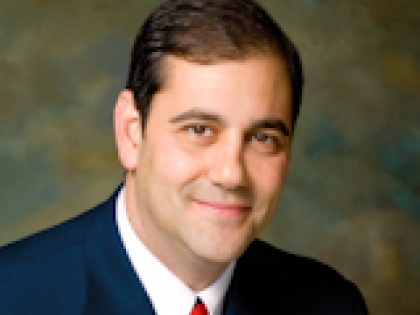
IN THE NEWS - Staten Island Advance legal columnist: Who should be mandated to report child abuse?
Andrew J Lanza
July 18, 2012
Published: Tuesday, July 17, 2012, 12:45 PM by Daniel Leddy
Following an eight-month investigation commissioned by Penn State itself, former FBI Director Louis Freeh issued a 267-page report last Thursday excoriating top officials at the school for enabling the protracted sexual abuse of young boys by Jerry Sandusky, its former assistant football coach.
Now, as the university’s board of trustees ponders the report’s 119 remedial recommendations, fallout from the scandal is spreading across the nation.
In addition to a heightened suspicion of those with an apparently unreasonable interest in a specific child or children, there have been numerous legislative initiatives to increase - in some instances, dramatically - the duty to report misconduct toward a child.
Because too many people are inclined to look away when confronted with the ugliness of child abuse, the concept of “mandated reporters” came into being many years ago.
These are individuals who, in the course of their various professions, are most likely to come upon information suggesting that a child may be abused or neglected.
Hence, they are required by law to report such instances to the appropriate state agency.
Current New York law is typical with respect to those designated as mandated reporters. It includes, among others, physicians, psychologists, registered nurses, social workers, substance- and alcohol-abuse counselors and day-care providers.
Those who fail to make a required report are subject to both criminal and civil liability.
On the other hand, if they do make a report and it turns out to be unfounded, they are clothed with immunity from any resultant lawsuit so long as they acted reasonably and in good faith.
Notwithstanding the immediate heartache and potential long-term implications of child abuse and neglect, the proposition that everybody should be a mandated reporter for every kind of child mistreatment was not popular prior to the Penn State scandal.
Now, however, key revelations in that case are being cited to promote just such a radically different approach.
In the fall of 2000, James Calhoun, a janitor at Penn State, witnessed Sandusky having oral intercourse with a young boy in the showers at the Lasch Football Building.
Although Calhoun told other janitors and a supervisor what he had seen, he did not report the crime to law enforcement.
Similarly, on March 1, 2002, Michael McQueary, a graduate assistant at the university and alter an assistant coach, saw Sandusky having anal intercourse with a young boy in those same showers.
While claiming to have given specific details of the incident to high-ranking Penn State officials, including the late football coach Joe Paterno, he, too, failed to notify police. The critical omissions of Calhoun and McQueary would be felonies under bills introduced by two veteran Staten Island legislators, Democratic Assemblyman Michael Cusick and state Sen. Andrew Lanza, a Republican.
The legislation, which, as Cusick says, embodies common sense, requires that, for criminal liability to attach, a person must actually witness a crime against a child as defined by the penal law, realize that he is, in fact, witnessing such a crime, and nevertheless fail to report it to law enforcement as soon as he is physically able.The bill is carefully crafted to avoid constitutional challenge, and is an intelligent response to a need made evident by the Sandusky case.
The same cannot be said, however, for the many sweeping legislative proposals now pending in several other states. Typical is legislation that’s been introduced in South Carolina which would require “any person in this state to report suspected child abuse or neglect.”
If enacted, the bill would make every adult resident of South Carolina the equivalent of New York’s mandated reporters, minus, of course, their professional expertise. Granted, some instances of child abuse are so blatant that they’d be apparent to the most benighted layperson. Conceptually, however, child abuse and neglect are imprecise terms, their incidences often susceptible to lively debate among professionals in the field.
To expect the average person to analyze every potential situation and make a reasonable judgment as to whether child abuse or neglect likely exists is unrealistic; to punish him for wrongly concluding that it doesn’t when, in fact, it actually does is unconscionable.
Making everybody a mandated reporter also invites abuse by those inclined to use the requirement as a pretext to maliciously defame others.
False accusations of child abuse, particularly child sexual abuse, have already become the nuclear option for desperate combatants in custody and visitation cases. They and similarly unscrupulous types would be further emboldened under a broad reporting mandate.
This potential for abuse also militates against less ambitious proposals, such as those that require youth league coaches to report suspected instances of child mistreatment.
Given the toxic environment created when parents and coaches put winning games and individual performances above the kids’ welfare, these leagues would become cesspools of recrimination.
The narrowly defined approach taken by Cusick and Lanza avoids these problems while substantially enhancing the protection of children.
In contrast, attempts by others to score political points by broadly expanding the reporting mandate will largely cause innocent people to suffer, an unintended but predictable result perversely traceable to Sandusky’s crimes.
[Daniel Leddy’s column appears each Tuesday on the Advance Editorial Page. His e-mail address is JudgeLeddy@si.rr.com.]
http://www.silive.com/opinion/danielleddy/index.ssf/2012/07/who_should_be_mandated_to_repo.html
Share this Article or Press Release
Newsroom
Go to NewsroomWishing you a Happy 4th of July!
July 2, 2013
